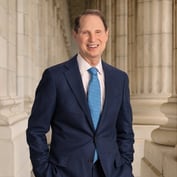What You Need to Know
- Advisors predict the Democrats' plan that would tax billionaires and other ultra-high earners would face legal hurdles.
- Scott Salaske, an advisor and CEO of RIA Firstmetric, called the plan lunacy.
- Advisors predict the plan would end up costing taxpayers who aren't billionaires also.
Advisors took to Twitter on Sunday and Monday to slam the tax plan targeted at billionaires that Democrats may be including in the Build Back Better budget bill.
Democratic lawmakers, with President Joe Biden’s support, are drawing up details of a plan that would tax billionaires and other ultra-high earners after Sen. Kyrsten Sinema’s opposition to raising the rate on corporations sank a key funding component for their $2 trillion social spending package.
Senate Finance Committee Chair Ron Wyden, D.-Ore., plans this week to unveil a new tax on the unrealized capital gains of the ultra-wealthy, according to his office. The tax would apply to a wide variety of items like stocks, bonds, real estate and art, with gains in value taxed on an annual basis, regardless of whether or not the asset is sold. His proposal dates back to 2019.
In a Sunday tweet, Michael Kitces, head of planning strategy at Buckingham Wealth Partners and co-founder of XY Planning Network, called the plan “interesting,” noting it “would be a quasi wealth tax, applied only to those w/>$1B of wealth of >$100M of income for 3 consecutive years, but specifically targeting unrealized capital gains.”
In response to his tweet, other advisors took their gloves off in slamming the plan, predicting it would be challenged in court if actually included in the Democrats’ bill.
“This is lunacy!” tweeted Scott Salaske, an advisor and CEO of RIA Firstmetric. “First it’s billionaires, then eventually it’s millionaires and then finally everyone else. ‘Unrealized gains’ let’s get real. Is the IRS going to allow 100% of ‘unrealized’ capital losses to be written off each year since they will be taxing ‘unrealized gains’?”
In response, Kitces tweeted: “Given that capital losses are limited to $3,000 against ordinary income, & the rule would only apply to those w/ more than $100,000,000 of income, I’m not sure write-offs for unrealized capital losses would help much here? You’d simply have taxes if it’s up, and not if it’s not?”
But Tariq Dennison, an advisor and wealth manager at GFM Asset Management, tweeted: That’s how all these headaches get sold to voters: they start off only targeting ‘the rich’, and then expands to capture millions of middle class professionals. Remember the AMT, which was originally only supposed to capture a handful of targets.”
However, Kitces pointed out: “The AMT did expand over time, but if you look at its legislative evolution in the 1970s and 1980s it wasn’t because they ‘expanded’ the AMT. It’s actually because Congress increasingly just banned the things AMT was originally supposed to limit.”









 October 25, 2021 at 02:52 PM
October 25, 2021 at 02:52 PM











